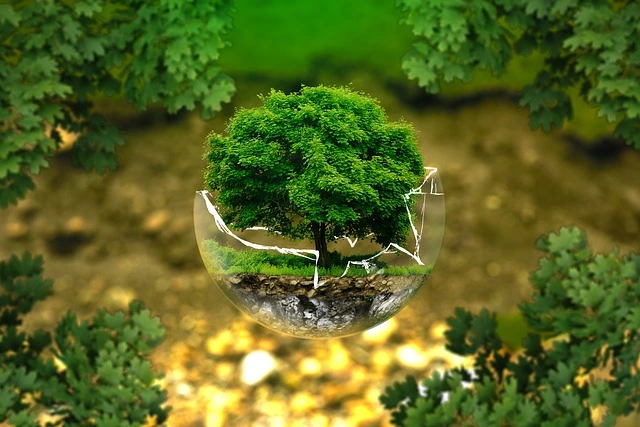Environmental issues are now one of the biggest problems facing humanity in the modern era. Pollution and the depletion of natural resources are serious issues due to the growing population and industrialisation. We’ll examine the environmental problems we now have, their causes, and potential remedies in more detail in this post.

Introduction | Environmental Issues
The article’s introduction establishes the tone and provides a preview of what to expect. We will quickly introduce the subject in this section and highlight the key ideas that will be discussed.
Climate Change
One of today’s most pressing environmental problems is climate change. In terms of temperature, precipitation, and wind patterns, it refers to the long-term changes in the Earth’s climate. Human actions including the usage of fossil fuels, deforestation, and industrial processes are the main contributors to climate change. Rising sea levels, more frequent and severe natural disasters, food and water scarcity, and increased frequency of extreme weather events are just a few of the many repercussions of climate change.
Air Pollution
Another serious environmental problem that has an impact on both human health and the ecosystem is air pollution. It is the result of human activities like the combustion of fossil fuels, travel, and industrial processes. Respiratory conditions, acid rain, and the ruin of structures and monuments are all consequences of air pollution.
Water Pollution
As a result of human activities like industrial operations, agricultural practises, and waste disposal, water bodies such as rivers, lakes, and seas can get contaminated. Loss of aquatic biodiversity, the development of diseases transmitted by water, and a decline in the quality of water suitable for human consumption are all consequences of water pollution.
Deforestation
Deforestation is the process of removing forests for human purposes like logging, agriculture, and urbanisation. It causes soil erosion, a loss of biodiversity, and climate change. The social effects of deforestation on indigenous groups who depend on trees for their way of life are also felt by them.
Biodiversity Loss
The global reduction of species and habitats is known as biodiversity loss. Overexploitation, pollution, climate change, and habitat degradation are the main contributors to biodiversity loss. The loss of ecological services including pollination, nutrient cycling, and carbon sequestration is one of the effects of biodiversity loss.
Waste Management | Environmental Issues
Waste management is the procedure for gathering, moving, and getting rid of waste. Poor waste management techniques, such as open dumping and burning, have a serious negative effect on the environment and human health. Recycling, composting, and garbage reduction are among the waste management alternatives.
Sustainable Development
Utilising resources in a way that satisfies current needs without endangering the ability of future generations to meet their own needs is known as sustainable development. It entails fusing together social, economic, and environmental concerns. Solutions for sustainable development include sustainable agriculture, green infrastructure, and renewable energy.
Renewable Energy
Energy that is produced from naturally replenishing resources, such sunshine, wind, and water, is referred to as renewable energy. Utilising renewable energy can aid in lowering greenhouse gas emissions, fostering job growth, and enhancing energy security.
Green Infrastructure
The term “green infrastructure” describes organic and semi-organic systems that offer ecosystem services like carbon sequestration, air filtration, and water purification. Urban parks, wetlands, and green roofs are a few examples of green infrastructure.
Sustainable Agriculture
Producing food in a way that is environmentally, socially, and economically sustainable is known as sustainable agriculture. Crop rotation, organic farming, and the use of cover crops are some of the techniques used to enhance soil health and lessen the need for synthetic fertilisers and pesticides.
Conclusion | Environmental Concerns | Environmental Issues
In conclusion, it is obvious that environmental concerns are of great importance to our world and to coming generations. These issues, which range from climate change to pollution to deforestation, are intricate and varied, necessitating a global effort by people, organisations, and governments to address them. Each of us must accept accountability for our deeds and make deliberate decisions that advance sustainability and safeguard the environment. We can only build a healthier, more sustainable future for future generations and ourselves by cooperating.
| Environmental Issue | Description |
|---|---|
| Climate Change | change in temperature and usual weather patterns over a long period of time brought on by human activity, particularly the release of greenhouse gases. |
| Deforestation | The rapid destruction of forests and trees, which causes habitat loss, soil erosion, and climate change. |
| Pollution | The release of unfavourable substances into the environment, such as soil contamination, water pollution, and air pollution, which can harm ecosystems and living things. |
| Overfishing | The unsustainable practise of overfishing, which depletes fish populations and harms marine ecosystems by harvesting fish at a rate faster than they can reproduce. |
| Loss of Biodiversity | The decrease in species diversity and habitats on Earth, which is frequently brought on by human activities such habitat destruction, climate change, and pollution. |
| Water Scarcity | Millions of people worldwide lack access to clean, safe drinking water, a problem that is made worse by climate change and excessive use of freshwater resources. |
TABLE
How to save Environmental Issues
- Be sure to first reduce, reuse, and recycle. Recycling is a fantastic approach to cut waste and protect resources. By recycling, we can lessen pollution, save on energy costs, and reduce the amount of waste that ends up in landfills.
- Second, be water wise. We must be careful how we utilise water because it is a precious resource. By turning off the tap when it’s not in use, repairing leaks and utilising low-flow showerheads and toilets, we can save water.
- Utilise energy-efficient appliances, third. Energy-efficient appliances use less energy, which lowers our energy costs and contributes to a decrease in greenhouse gas emissions. Utilising energy-saving appliances allows us to conserve money and the environment.
- Fourth, assist reforestation efforts by planting trees. In addition to producing oxygen and absorbing carbon dioxide, trees also influence climate. We can fight climate change and protect biodiversity by supporting reforestation projects and planting trees.
- Lastly, reduce your carbon footprint. Our daily activities, such as driving, eating meat, and using electricity, contribute to our carbon footprint. We can reduce our carbon footprint by walking or biking, eating a plant-based diet, and using renewable energy sources like solar or wind power.
Read about Environmental Science
Environmental Issues FAQs
First, because greenhouse gas emissions are causing global temperatures to rise, climate change is a serious issue. Second, the loss of biodiversity is being caused by habitat destruction and deforestation. Finally, ecosystems and human health are being impacted by pollution of the air, water, and soil.
First off, lowering individual carbon footprints by taking the bus or biking instead of driving can help slow down climate change. Second, pollution may be reduced by reducing trash through recycling and using recyclable items. Choosing sustainable products and aiding conservation efforts can also help safeguard biodiversity.
First off, lowering individual carbon footprints by taking the bus or biking instead of driving can help slow down climate change. Second, pollution may be reduced by reducing trash through recycling and using recyclable items. Choosing sustainable products and aiding conservation efforts can also help safeguard biodiversity.
In addition to causing allergies and asthma attacks, air pollution can also worsen cardiovascular and respiratory conditions. Long-term exposure to pollutants, such as fine particulate matter, can shorten life expectancy and raise the risk of cancer.
The diversity of life on Earth, including various species, genetic diversity, and ecosystems, is referred to as biodiversity. It is significant because it sustains ecosystems that supply vital services like clean water and air, as well as resources like food and medicine.
